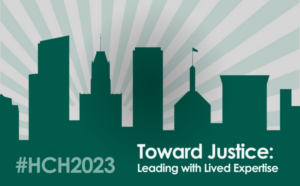Across the United States the homeless population is growing older and sicker. Homelessness results in an accelerated aging process and the rapid worsening of chronic medical conditions that could be treated with consistent access to quality care and shelter. Additionally, being unhoused carries an increased risk of disability and traumatic brain injury. As the health of chronically homeless individuals deteriorate, they often cycle between the unsheltered environment, inpatient hospitalization, and skilled nursing facilities, often ending up back on the street without proper care or accommodation. Often the only housing option for medically frail people experiencing homelessness is limited to institutionalization. Conversely, many people who have experienced homelessness value their independence and autonomy and desire to be housed in the community. The lack of housing options for the medically vulnerable has grown into a gap in which some of the most vulnerable unhoused people fall through.
An organization in an urban area has piloted a novel and sustainable program to house medically frail homeless individuals by leveraging existing federal Medi-Caid Home and Community Based Alternatives (HCBA) wavier programs. HCBA waivers provide for personal care, skilled nursing and medical case management services that flex to meet the beneficiaries needs, up to 24-hour of skilled nursing care. Through these federal waivers the medically frail Homekey program is permanent housing where individuals can live with autonomy up to and including end of life care. The organization has successfully housed and stabilized some of the “sickest of the sick” homeless people in the County, including individuals with medical, social, and behavioral complexities that have historically compromised their ability to be housed in the community.
Speakers: Alexis Chettiar: Cardea Health; Catherine Hayes: President Cardea Health
Session Materials:


